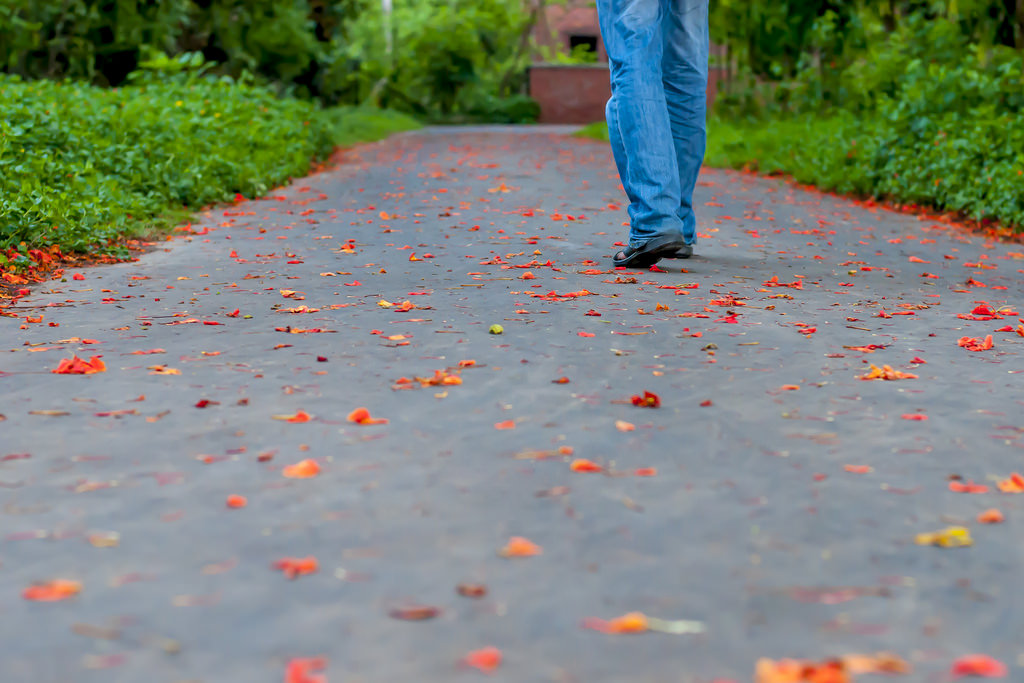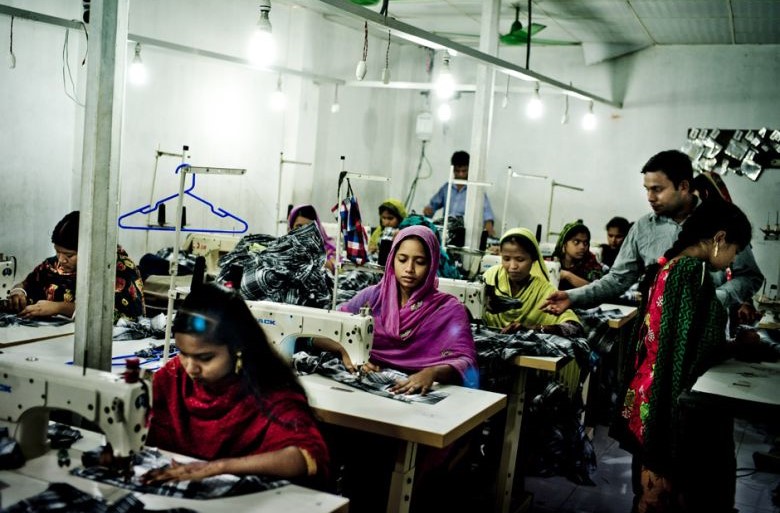Women and girls living in protracted displacement need help with personal and menstrual hygiene, psychosocial support, and protection from gender-based violence. LSE Alum and Founder of My Internally Displaced Persons, Toluwalola Kasali tells us about projects for women and girls displaced from North-East Nigeria aimed at helping to maintain their dignity.
Over 70 million people globally are living in internal displacement at the end of 2022. They have been forced to flee their homes due to armed conflict, violence, violations of human rights, and disasters – and now live in camps and host communities within their country. They have been made to leave everything they own and are familiar with behind to seek safety – they had homes, friends, families, businesses, and communities – and in one day, all of that changed.
“They destroyed our lives and property. We have nothing left,” said Zara, who fled the armed conflict in her town in Northeast Nigeria in 2014.
Over half (fifty-five percent) of those displaced from Northeast Nigeria are women and girls who are dependent on infrequent relief distributions to meet their food needs – and there is little or no focus on their gender-based needs and vulnerabilities. Speaking to women and girls across four (4) IDP camps in Abuja to understand their needs revealed a need-gap for personal and menstrual hygiene items, safe spaces for counselling, and protection from gender-based violence.
“Dignity kits give women and girls access to personal and menstrual hygiene items that maintain their dignity and improve their confidence to participate in activities.“
Firstly, personal and menstrual hygiene items such as sanitary pads, soaps, and underwear are essential items needed by female IDPs. However, these items are either unavailable or out of their financial reach. Girls often face exploitation when in need of these items, and others settle for substitutes. For example, girls mentioned using cloths and paper as alternatives for sanitary pads, making them concerned about leaving their batchers (built shelter) during their menstrual periods. When this happens, many girls skip school and do not participate in learning or skills acquisition activities, causing additional stress and anxiety with consequences for their health, education, and progress.
As part of the response to the specific needs of women and girls through a multisectoral program, 1000 dignity kits were distributed across Area 1, Kuchingoro, Kuje, and Wassa IDP Camps in Abuja, Nigeria.
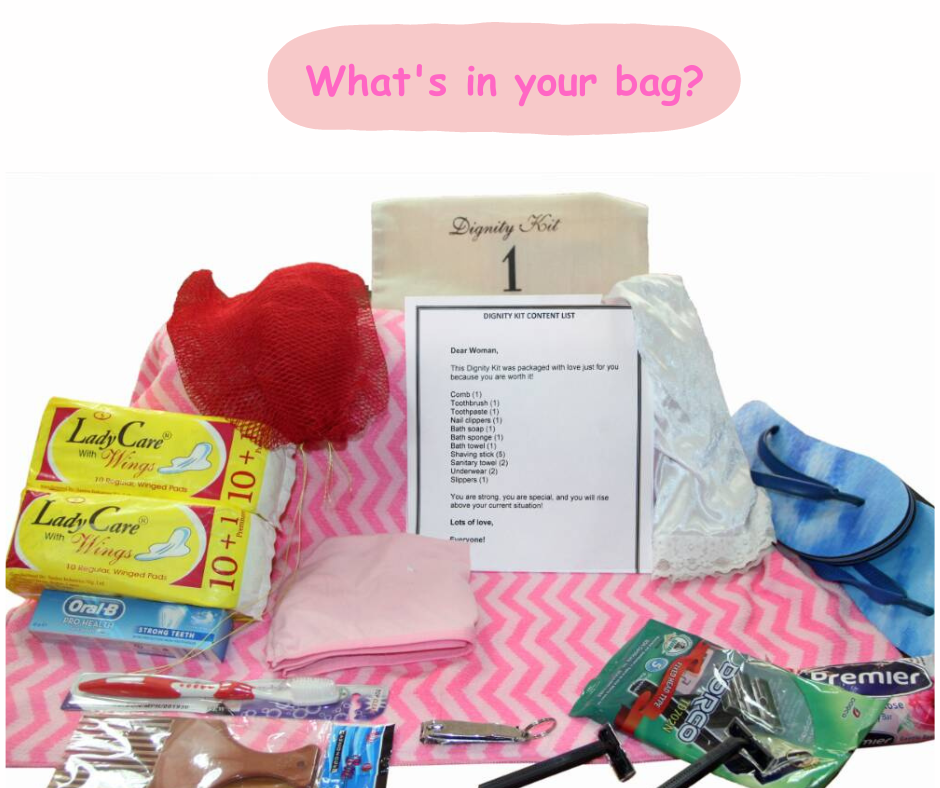
Each dignity kit contained hygiene and menstrual items tailored to the needs of women and girls in the camps, including a comb, toothbrush, toothpaste, nail clipper, bath soap, bath sponge, bath towel, shaving sticks, sanitary pads, underwear, and slippers. Each bag was made with solid reusable material that could be converted for other uses. It also included a letter to the women and girls to let them know that each bag was packed with them in mind. As they opened their kits, you could see the excitement on their faces – they danced, laughed, smiled, and took turns showing off the contents of their kit.
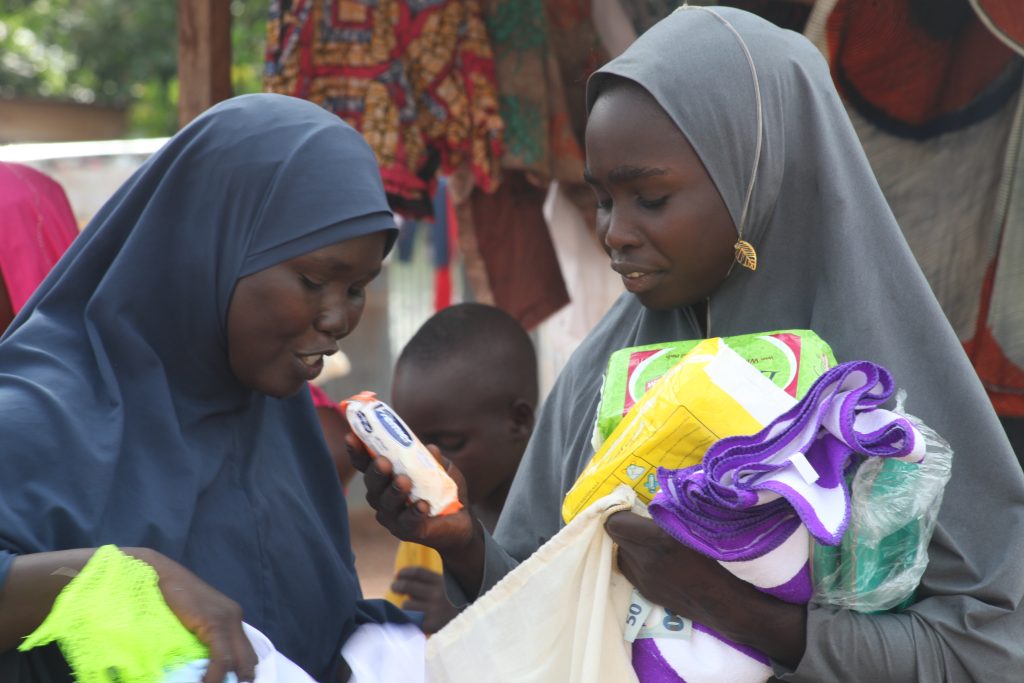
“Sewing locally sourced fabrics and materials into reusable sanitary pads helps to maintain sustainability.”
Being able to sustainably maintain their menstrual hygiene needs is essential – and teaching women and girls how to make reusable sanitary pads provides a regular supply for personal use, serves as a source of income, and creates opportunities for them to teach others.
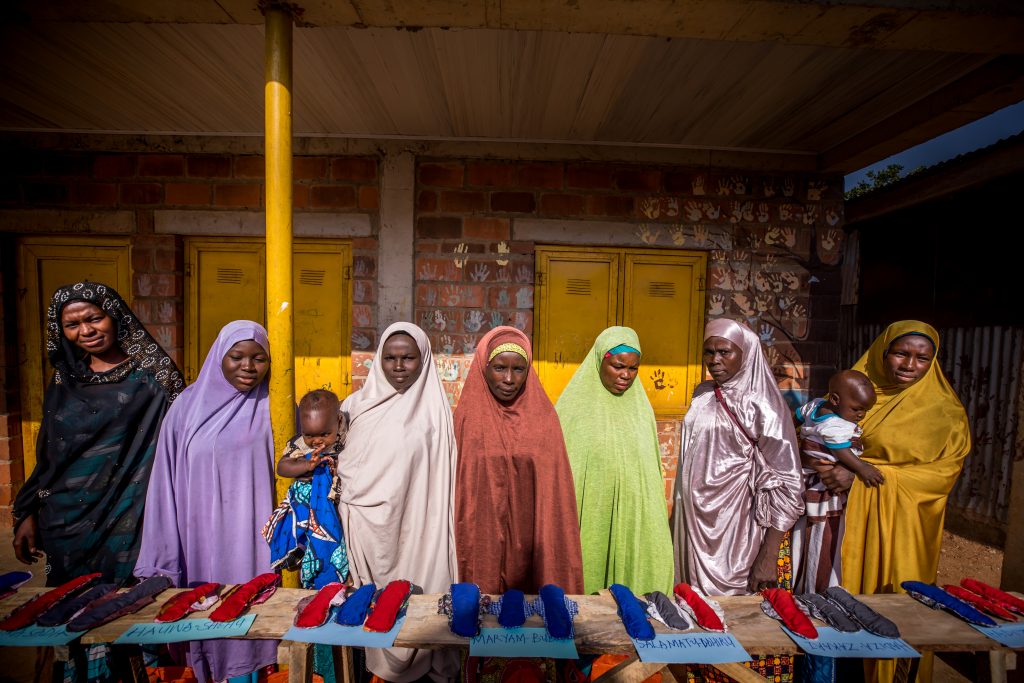
Hadiza and Fatima, who were part of the 1,000 women who received dignity kits, also learned how to make and maintain reusable sanitary pads in the skills acquisition program.
“The training was helpful, and I will stop thinking too much now. I have learned to make small and big sanitary pads. I, too, will teach other children.” Said, Hadiza
“The training and counselling made me to be very happy. I have been making the sanitary pads for myself and my neighbours for personal use.” Said, Fatima
“Counselling and psychosocial support is integral to maintaining the dignity of women and girls.”
Secondly, providing a safe space for women to speak about their experiences and receive counselling is integral to helping women maintain their dignity. In many cases, women feel uncomfortable speaking out about their personal, menstrual, or reproductive health concerns due to a lack of trusted individuals and the fear of stigma and isolation, all of which can have a long-term impact on their mental and physical well-being.
“I have problems with my breast, but I have not told anyone because I am afraid of what people will think of me.” Said Blessing.
However, when women are in a safe space, counselling helps them to express themselves and speak about their concerns – it also makes them feel like people care about them.
“I like it when people come to the camp to talk and listen to me share my problems. It makes me feel like people care about me.” Said Zainabu
“Women and girls are also vulnerable to sexual-based violence and need protection while living in camps.”

Thirdly, women and girls are vulnerable to sexual-based violence in the camps and host communities with very little structures for reporting these incidents. Young girls should feel safe walking home, playing, or going to school. Programs that include focus group sessions create an opportunity for young girls to discuss personal & safety issues, menstrual hygiene, and gender-based violence. Adequate security measures should also be put in place to ensure the safety of girls in and around the camps. Young girls can also be provided with whistles to call for help in distress situations.
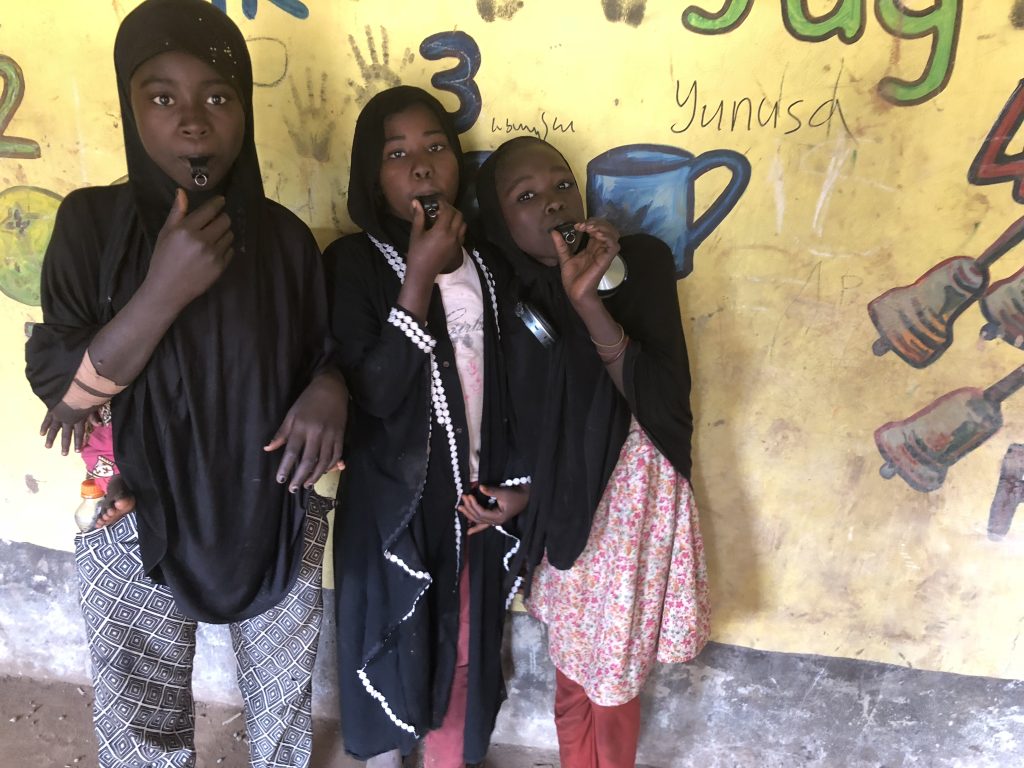
Women and girls are faced with challenging situations daily. These solutions are only a part of the broader multisectoral interventions needed to improve their self-esteem, state of mind, and dignity – all of which are important for them to participate in learning, skills acquisition, and livelihood activities.
The views expressed in this post are those of the author and do not reflect those of the International Development LSE blog or the London School of Economics and Political Science.
Pictures: Taken as part of the self-reliance activities on the camps to support IDPs by the cause, My Internally Displaced Persons. Consent has been granted by the subjects in these pictures.


